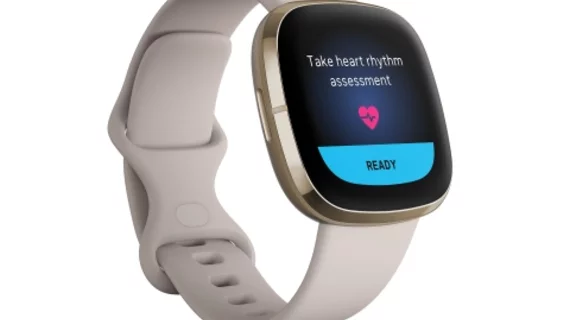Smartwatch app accurately detects atrial fibrillation in large Chinese study
Among patients who received a smartwatch notification that they may have atrial fibrillation (AFib), 94% of those who followed up with a doctor were confirmed to indeed have the common heart rhythm disorder, according to a study presented at the American College of Cardiology (ACC) 2022 Annual Scientific Session.
The findings represent data from more than 2.8 million participants who downloaded an AFib screening app onto a Huawei smart device. Over the course of the four-year study, if the app detected normal heart rhythms while monitoring the wearer’s pulse, then the wearer would receive a call from a clinician inviting them to schedule an appointment.
“With the global surge of wearable technology for AFib screening, especially in the challenging setting of the COVID-19 pandemic, the present study provides a possible solution to help people identify possible signs of AFib and get diagnosed and treated earlier,” said Yutao Guo, MD, professor of internal medicine at Chinese PLA Medical School and Chinese PLA General Hospital in Beijing and the study’s lead author in an ACC statement.
A subset of the study’s participants were also screened for obstructive sleep apnea, with results showing that people flagged by the app as possibly having sleep apnea were also 1.5 times more likely to have AFib.
“This consumer-led AFib screening approach highlights the increased risk for detecting prevalent AFib episodes over time and the need for modification of obstructive sleep apnea and other risk factors that increase AFib susceptibility,” Guo said.
While the rate of AFib for those who saw a doctor was high, the study does note that just 53.3% of people flagged as showing potential signs of AFib did undergo further evaluation. The 94% positive rate only reflects the diagnosis of those individuals.
Early detection of AFib can play a critical role in managing the disease and preventing potential complications; AFib is responsible for approximately one in seven strokes, according to the CDC.
Links to all the ACC 2022 late-breaking clinical trials
Related Smartwatch Medical Technology Content:
FDA clears advanced smartwatch capable of detecting AFib
World's first wearable BP monitor functions as a smartwatch
FDA clears ECG feature for ‘prescription-only’ smartwatch
